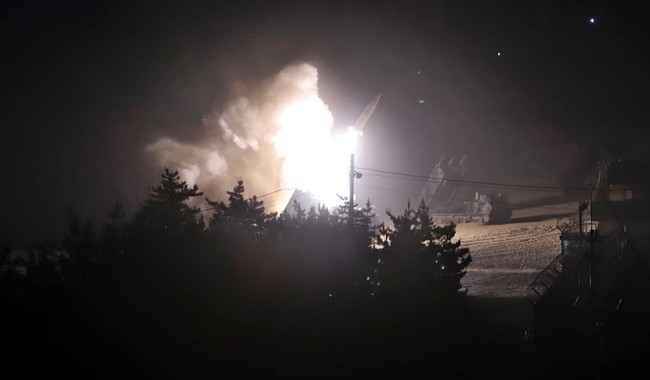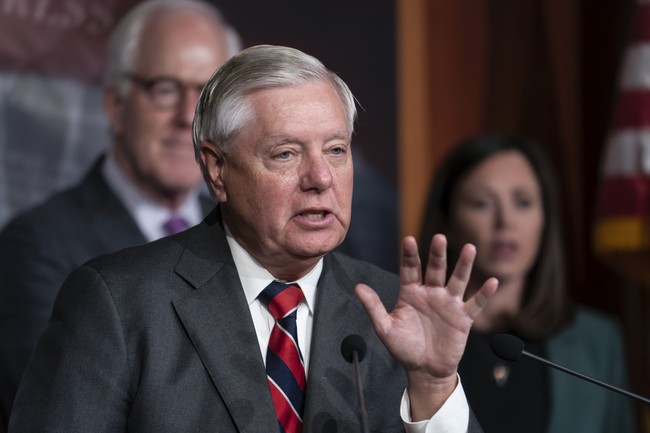Ukraine's Missile Strike Causes Nuclear Tensions
In a significant escalation of the Ukraine conflict, the recent missile attack ordered with US approval has sparked a shift in Russia's nuclear policy.
Published November 20, 2024 - 00:11am

Image recovered from redstate.com
The recent military developments in Ukraine have marked a critical escalation in the ongoing conflict. In an unprecedented move, Ukraine launched a missile attack on a Russian ammunition depot located in Bryansk Oblast using American-supplied ATACMS tactical ballistic missiles. This strike comes on the heels of a new authorization by President Joe Biden, permitting the use of US weapons on Russian soil, a decision that has far-reaching implications for the region.
This attack on Bryansk, which is more than 80 miles inside Russian territory, represents the first significant use of ATACMS by Ukraine following the US policy shift. According to various reports, including statements from the Russian Defense Ministry, Ukraine fired six ATACMS missiles. While Russian sources claim that five of these missiles were intercepted, damage was reportedly inflicted by the sixth.
The Russian government has responded by updating its nuclear doctrine, increasing the stakes in the conflict. President Vladimir Putin has declared that any aggression involving a nuclear-armed state, such as the United States, would be considered a joint attack on Russia. This rhetoric marks a substantial shift from previous stances, potentially lowering the threshold for nuclear engagement and indicating the seriousness with which Russia views the recent developments.
According to Russian media, the Russian anti-aircraft systems, including S-400 and Pantsir, were activated during the Ukrainian missile attack, leading to the interception claims. Despite these defenses, the attack caused a fire at the depot, though the Russian government maintains there were no casualties. The Kremlin's spokesperson, Dmitri Peskov, has assured the public that Russia's military controls the situation.
The authorization by President Biden signifies a critical point in international involvement in the Ukraine conflict. For months, Kyiv had petitioned Washington for permission to strike deeper into Russian territory, a request that was initially met with skepticism due to fears of escalating the war. However, the recent integration of North Korean soldiers into Russian forces, a move that has alarmed both the US and its allies, has apparently influenced the decision. American officials have been reported to express concerns regarding North Korea's involvement, thus swinging the balance in favor of the Ukrainian request.
This shift in military strategy has profound implications for international relations and security. Western nations are closely monitoring the situation, aware of the broader geopolitical ramifications. The authorization of long-range missile strikes against Russian targets is a significant departure from the earlier defensive use of such weapons by Ukraine and highlights the intensifying conflict, which has already stretched beyond 1,000 days.
President Putin's recent decree aligns with his previous warnings regarding NATO's involvement in what he perceives as a direct threat to Russia. The updated doctrine, which includes the potential for nuclear response, underscores the susceptibility of the conflict to rapid escalation, a factor that global leaders cannot afford to ignore.
As the situation develops, attention turns to diplomatic avenues and the role of international bodies in de-escalating the conflict. Meanwhile, Ukraine continues to bolster its defensive and offensive capabilities, drawing on support from allies who are now more committed than ever to resist Russian advances.







